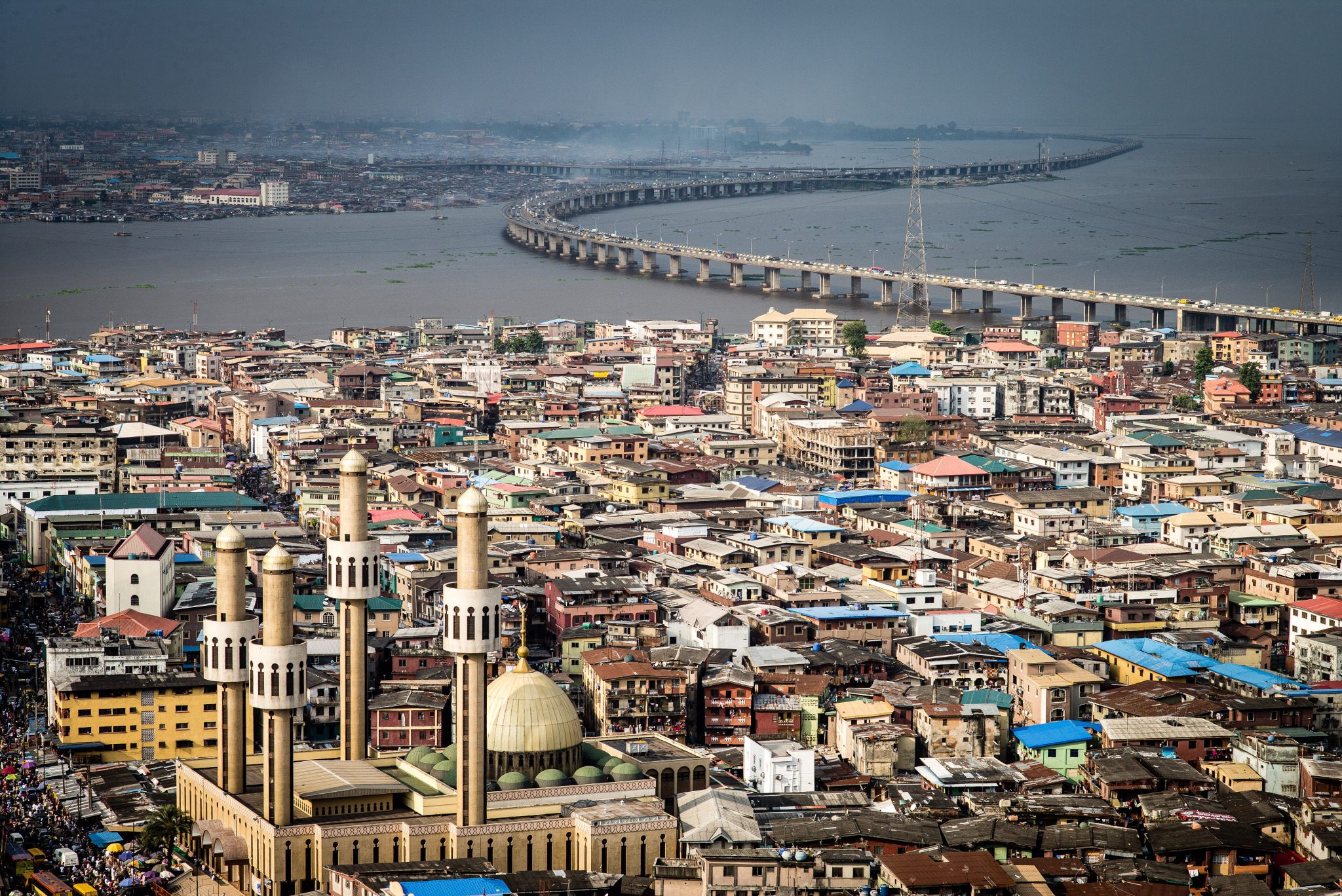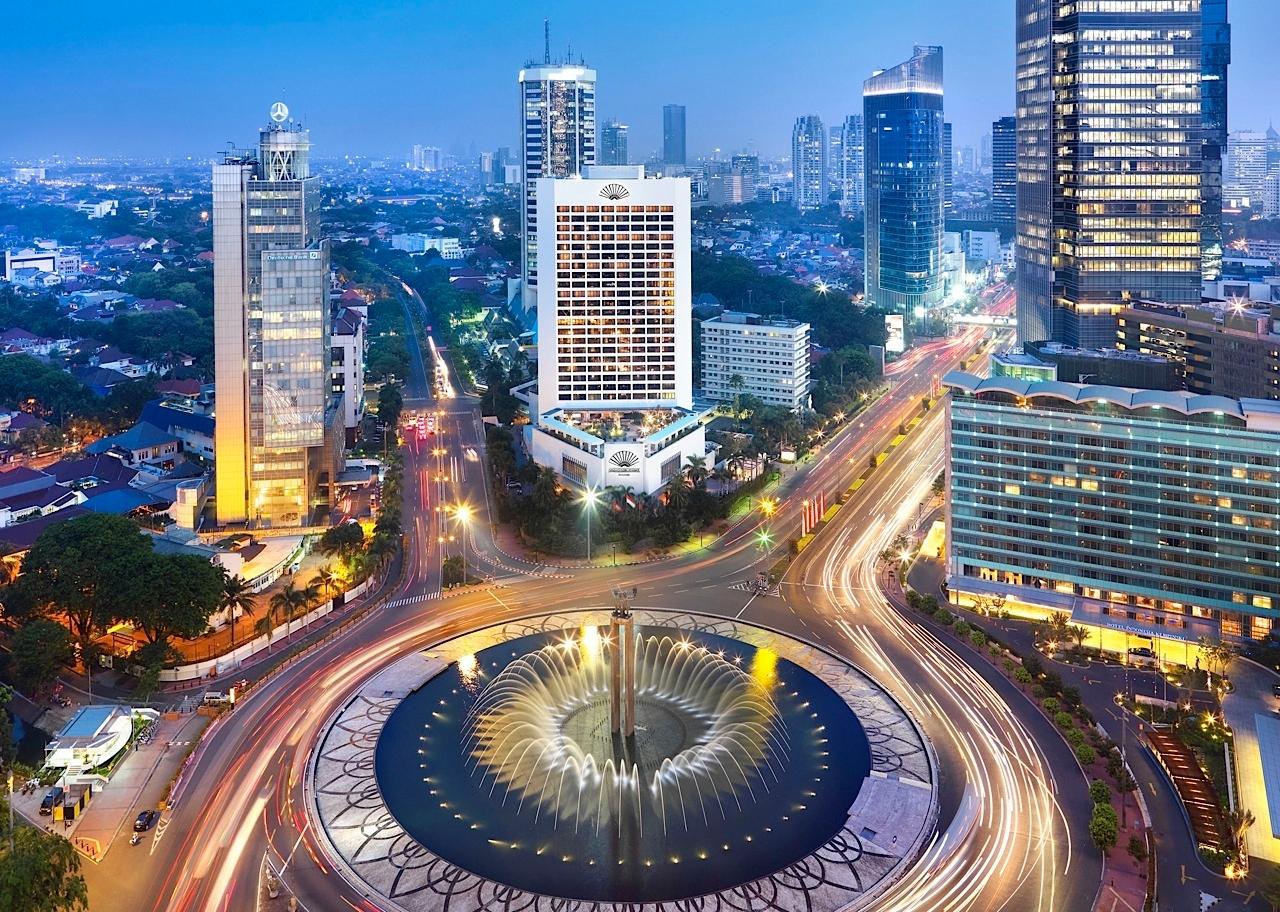Many folks wonder about Nigeria's geography, and that's a pretty common thought, too. It's interesting how some places get known for certain things, but their actual layout might be a bit of a surprise to some.
So, we're going to clear up a big question about this West African nation, you know, its connection to the big blue sea.
This country, a very large one in Africa, actually has a really important relationship with the ocean, which helps shape its day-to-day life and trade, as a matter of fact.
Table of Contents
- The Big Question: Is Nigeria Landlocked?
- Nigeria's Atlantic Gateway
- The Niger River: A Lifeline and a Name Origin
- A Look Back: Ships and Trade Routes
- The Importance of Maritime Access
- Nigeria's Neighbors: A Quick Look
- Common Questions About Nigeria's Geography (FAQs)
The Big Question: Is Nigeria Landlocked?
A lot of people, you know, sometimes get confused about which countries in Africa have a direct link to the ocean.
It's a fair question to ask about a place like Nigeria, given its position on the continent.
So, to put it simply, the answer is a clear no, Nigeria is not landlocked, not at all.
This nation, as a matter of fact, boasts a rather significant coastline along the Gulf of Guinea, which is part of the vast Atlantic Ocean.
This direct access to the sea is, arguably, one of its most defining geographical features.
It really shapes, you know, how the country interacts with the rest of the world, especially when it comes to business and moving goods.
Nigeria's Atlantic Gateway
Nigeria's coastal stretch is quite extensive, offering a natural boundary with the Atlantic Ocean, so it's a very important part of its identity.
This long coastline means the country has several natural harbors, which are really valuable assets for any nation, as you can imagine.
The most famous of these, of course, is Lagos, a bustling city that's also home to one of Africa's largest and busiest ports, you know.
This port at Lagos is a hub of activity, with ships coming and going from all over the globe, carrying all sorts of items.
It's a place where goods from faraway lands arrive, and where things made in Nigeria begin their trip to other countries, too.
The presence of these ports, as a matter of fact, directly contradicts the idea that Nigeria might be cut off from the sea.
It's a clear sign of its strong connection to global shipping lanes, which is pretty vital for its economy.
This coastal front provides, in a way, a strategic advantage, allowing for easier international trade and movement.
It also plays a role in the country's defense and its ability to engage in maritime activities, you know, like fishing and offshore resource gathering.
The Niger River: A Lifeline and a Name Origin
Now, while Nigeria clearly has a coastline, its name, interestingly enough, comes from a famous river, the Niger River.
This river is, as a matter of fact, one of Africa's most important waterways, snaking its way through many countries, including Nigeria itself.
The name "Nigeria" is, actually, directly linked to the Niger River, which is a bit of a fascinating piece of history, you know.
There was a company, The Niger Company Ltd, that, arguably, held a lot of land in the Niger River basin.
This area, which was pretty significant, later came under the control of the British government in the year 1900.
It was this historical connection to the river and the company that, in a way, gave the new British protectorate its name: Nigeria.
So, the river itself is not just a geographical feature; it's part of the very identity of the country, too.
The Niger River, you know, has long been a source of life and movement for the people living along its banks.
It provides water for farming, a way to travel for local communities, and, in some respects, has shaped the culture of the region for centuries.
Even though the river is central to the country's name, it's the Atlantic Ocean that provides the direct sea access for international trade, as a matter of fact.
The river does, however, allow for inland transport, connecting different parts of the country, which is pretty useful.
A Look Back: Ships and Trade Routes
The history of trade and shipping in and out of Nigeria is, actually, quite rich and full of interesting stories, you know.
My text tells us about various vessels, like "binnenvaarttankers" or inland tankers, that made their way to and from Nigeria.
It seems that from 2004 up until 2011, there were, on average, between one and four or five of these ships making the journey, which is quite a number.
This shows that maritime trade has been a consistent part of Nigeria's economic life for a long time, so it's not a new thing.
There's a story, too, about a ship called the "Zaanstroom" that was, apparently, once boarded up in a harbor, ready to be towed to Nigeria.
But then, you know, plans changed, and the ship was, in fact, reopened and put back into use, which is a bit of a twist.
Another interesting note from my text mentions the "Pallas," a ship that, as of a very recent date, was lying on land near Lagos, seemingly "goed geknikt" or perhaps bent, which is pretty striking.
This image, you know, of a ship on land near a major port, really brings home the reality of maritime operations, with all their challenges and changes.
And there's also talk of the "ex Algorab," now named "Massoua," which was, as of a few years ago, still operating in Congo and looking, as my text puts it, "als een goud haantje," or like a golden rooster, suggesting it was in good shape and perhaps doing well.
These anecdotes, you know, give us a real sense of the continuous flow of ships and goods that have been a part of Nigeria's coastal life for years.
They highlight the constant movement and evolution of the shipping business connected to Nigeria's ports, which is pretty dynamic.
It's clear that the country's access to the sea has been, and remains, a critical factor in its commercial dealings with the wider world, as a matter of fact.
The movement of these tankers and other vessels underscores the practical importance of having a direct route to the open ocean, you know, for moving all sorts of cargo.
The Importance of Maritime Access
Having direct access to the sea is, frankly, a massive advantage for any country, and Nigeria is no exception, not at all.
This connection means that the country can, you know, easily engage in international trade, which is a cornerstone of modern economies.
It allows for the import of goods that Nigeria needs, like machinery, electronics, and various raw materials, so it's very important.
And it also provides the main way for Nigeria to export its own products, such as oil, agricultural items, and manufactured goods, to markets across the globe.
Without this sea access, the costs of trade would be, arguably, much higher, and the process would be a lot more complicated, too.
Goods would have to be transported through neighboring countries, adding extra time, money, and logistical hurdles, as you can imagine.
This direct link to the Atlantic Ocean, you know, makes Nigeria a key player in West African trade and a significant economic force on the continent.
It helps attract foreign investment, as businesses know they can efficiently move their products in and out of the country, which is pretty appealing.
The ports also create many jobs, from dockworkers and sailors to customs officials and logistics managers, so it's a big employment driver.
In essence, Nigeria's maritime access is a vital artery for its economic health and its connection to the global marketplace, as a matter of fact.
It provides a pathway for growth and development that landlocked nations simply do not possess, which is a clear difference.
Learn more about geography on our site, and you can also find more details about maritime trade by checking out this page here.
Nigeria's Neighbors: A Quick Look
When we talk about Nigeria's geography, it's also helpful to look at its neighbors, as some of them are, in fact, landlocked.
To its north, for instance, lies the country of Niger, which is, actually, completely surrounded by land, without any direct sea access.
My text, interestingly, brings up a question about why Niger and Nigeria haven't changed their country names, given that they both relate to the Niger River and, you know, might cause some confusion.
This distinction between Nigeria's coastal status and Niger's landlocked situation is, arguably, a good way to understand the difference.
Niger relies on its neighbors, including Nigeria, for access to ports and the sea to conduct its international trade, which is pretty common for landlocked countries.
So, while Nigeria benefits greatly from its coastline, it also plays a role in facilitating trade for its landlocked neighbors, too.
This regional dynamic highlights just how valuable Nigeria's maritime gateway is, not just for itself but for the broader West African region, as a matter of fact.
Common Questions About Nigeria's Geography
Does Nigeria have a port?
Yes, absolutely, Nigeria has several important ports, as a matter of fact.
The most well-known and busiest is, arguably, the Port of Lagos, which is a very active hub for trade.
There are other ports as well, like Port Harcourt, Warri, and Calabar, all serving different regions and types of cargo, you know.
These ports are essential for the country's economy, handling a vast amount of its imports and exports, so they're pretty vital.
What is the main port in Nigeria?
The main port in Nigeria is, without a doubt, the Port of Lagos, which is actually a complex of several port facilities, too.
It includes Apapa Port and Tin Can Island Port, both of which are extremely busy and handle a huge volume of goods.
Lagos, as a city, is also the largest in Nigeria and a major economic center, so it makes sense that its port would be the primary one.
It's the gateway for much of the country's international trade, receiving container ships, tankers, and other cargo vessels from around the world, as a matter of fact.
Is Nigeria an island?
No, Nigeria is definitely not an island, not at all.
It's a large country located on the West African mainland, sharing land borders with several other nations.
While it has a significant coastline along the Atlantic Ocean, it's very much connected to the rest of the African continent, you know.
So, it's a mainland country with direct sea access, which is a pretty common geographical setup for many nations, as a matter of fact.



